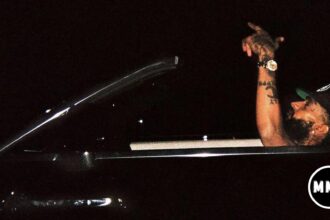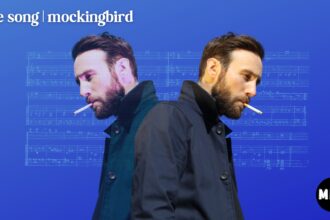Roughly ten fictional years after Nate Mondschein and I tore our respective houses down at our 1960s music festivals, we’re back to put on two more unforgettable shows. Musically, the 1970s are as loaded as a decade can be, combining artistic culture and real-world issues to create brand new sub-cultures within.
Nate and I have our work cut out for us, with a plethora of artists and genres to choose from. Ranging from Black Sabbath’s Paranoid to Carole King’s Tapestry, our options are tremendous.
Let Decadepalooza II: The 1970s commence!
The rules are about as straightforward as rules tend to get at MMH:
- Only artists who released music during the years 1970-1979 are eligible for the draft, and only the music they produced during that era will be included.
- Each festival must have one (1) headliner, two (2) co-headliners, and one (1) opener.
- Each headliner must have at least one #1 hit within the decade in question.
- No artist selected as an opener can have a platinum album during the decade in question.
- At the conclusion of the draft, the festival promoters will select a venue and one additional variable to add to their festival.
For those hoping to get as close as possible to the true festival vibe, we’re each including a playlist of our dream sets by each act, which you can stream via the links in our festival titles; and for all you competition-junkies, draft results will be posted at the conclusion of the piece, below our individual festival breakdowns.
Without any further ado, welcome to Decadepalooza II: The ‘70s!
The Final Frontier: Music and Beyond
Opener: David Bowie
The 1970s were arguably America’s peak in terms of creativity and innovation within pop culture. No individual better represents such newfound exhibitionism than this gender-bending science fiction marvel. Known formally as David Bowie, and informally as Ziggy Stardust, Aladdin Sane, and the Thin White Duke; Bowie popularized on-stage theatrics to a previously unseen level. His equal emphasis of character and world-building to the music itself made him a unique force in the industry that hasn’t been replicated since.
During the 70s, Bowie focused his attention on the realm of science fiction. “Life On Mars?” speculates about aliens in contrast to the worsening lifestyle on Earth. 1972’s “The Rise and Fall of Ziggy Stardust and the Spiders From Mars” delves into full space rock opera territory. The album is as stacked as it is wordy, churning out “Five Years”, “Soul Love”, “Moonage Daydream”, and “Starman” in a four-song album-opening hot streak.
Not into sci-fi theatrics? Bowie’s 70s catalog still impresses with some of the biggest pop alternative hits of the decade. Without turning this article into a shameless list of songs, “Fame”, “Rebel Rebel”, “Heroes”, and “Changes” are all featured in Bowie’s ten years of being a human greatest hits generator. He’s admittedly overqualified to be the opener, but the 70s are so ridiculously loaded that cuts like this are inevitable.
Co-Headliner #1: ELO
What happens when you combine the Beatles’ songwriting mentality with an Earth Wind and Fire-esque musical backbone? Electric Light Orchestra. Led by Jeff Lynne, the band, ELO epitomizes many of the common attributes that make up a successful 1970s band.
- Fantastic instrumentation
- Charismatic frontman
- Bevy of commercially successful and arthouse hits
- Steady album production
As a fictional concert promoter, I like ELO’s placement here in the show. No matter how good the entertainment is, any audience is going to get worn down after a certain length of time. Their attention erosion would be heightened after four straight acts with heavy tones and lyricism.
ELO brings a fun pop energy to the otherwise darker event, but remains just edgy enough to match the vibe of the festival.
Co-Headliner #2: Pink Floyd
No human has ever attended a Pink Floyd show and gone home disappointed. The progressive rock collective were masters of live performance, incorporating massive set pieces, lasers, and a mind for the fantastical.
In just a six year span from 1973-1979, Pink Floyd released four of the most iconic and culturally resonant rock albums in the genre’s history: “Dark Side of the Moon”, “Wish You Were Here”, “Animals”, and “The Wall”. This run for Roger Waters and co. rivals any other musical prime we’ve ever seen. The band was hitting on all cylinders by this point and defines the concept of The Final Frontier perfectly.
Headliner: Led Zeppelin
Robert Plant. Jimmy Page. John Paul Jones. John Bohnham. Each has their own claim to the throne of their respective positions. As a quartet they became the greatest band to ever live. Having the first pick in this festival draft left me with no choice but Led Zeppelin. I’m not sure what I could possibly say to add to the 50+ year legacy of Zeppelin praise. I’m also not sure that being born in 2003 qualifies me to write about them at all.
What I can say is that Zeppelin exists in the most exclusive echelon known to music, tentatively titled the “Lauryn Hill Club”. The club’s members must fulfill one central requirement: their discography must be flawless. No bad albums. No bad songs. The club fluctuates in size frequently, with some members rotating in or out multiple times based solely on my indecisiveness. Gnarls Barkley, Peter Gabriel, and The Pharcyde have become consistent mainstays in the group while the Ozzy Osbornes and Princes of the world could go either way depending on my mood.
Ironically the only member I’d always question is Lauryn Hill. She’s the obvious namesake for having a perfect track record with her singular album “The Miseducation of Lauryn Hill”. Does one album count as a discography? Maybe not. Does this sidebar have anything to do with Led Zeppelin? Definitely not.
Zeppelin closes out the show on as high of a note as one could get to, reaching as deep into their bag of hits as they want. The title of greatest band of all time holds a tremendous weight. It’s a weight that I wouldn’t trust any other artist to bear.
Venue: Rose Bowl
You can’t have Bowie, Pink Floyd, ELO, and Zeppelin perform at some indoor theater. This foursome requires a grand stage
Variable: Event followed by a screening of Star Wars (1977)
Showing Star Wars after this massive concert is a moment that fictional promoters like me dream of. I modeled this whole show around the ending, and what an ending it will be. Four straight sci fi/fantasy infused rock acts followed by the most mind blowing cinematic experience at its time. The Final Frontier will be written about in history books, and we wouldn’t want it any other way.
The ‘70s
Nate’s Festival: Superstitious Zombies Don’t Stop Waiting On The End Of The World!
Opener: Elvis Costello
Only three albums deep by the end of the seventies (two of which easily top his discography), this New-Wave upstart is a perfect kick-off to the Superstitious Zombies fest. Elvis brings to the stage a finely tuned, anxiety-ridden pop sensibility, more than a handful of classic singles (even at this early stage in his career), and a profound sense of hope to near-and-far-sighted fans across the globe with dreams of bespectacled rock stardom. His “Welcome To The Working Week”/“Miracle Man” one-two punch remains one of the best openers to an album to date, and will be an ideal opening to this year’s festival. Welcome to the lineup, Elvis!
Co-Headliner #1: Fela Kuti
Your favorite musician’s favorite musician. Though his prominence in the States escalated dramatically in the wake of the late 2000’s biographical Broadway musical that carried his name, Fela Kuti’s creative prime was in the 1970s. The progenitor of Afrobeat was as acclaimed for his fifteen-minute groove-heavy anthems as he was for the political weight of his music, which frequently took aim at everything from the Nigerian military and government, to oppressive Eurocentric cultural norms and their malignant influences on communities across Africa (always laced with a biting sense of humor). Kuti in many ways remains a blueprint for artistic activism that doesn’t stop with the art, and both his message and music will be fantastic additions to our festival.
Co-Headliner #2: Fleetwood Mac
Securing a headliner-worthy crew in the co-headlining slot for the second decade in a row: the penultimate performance of the Superstitious Zombies festival will be by one of my favorite bands of all time, the one and only Fleetwood Mac.
Our co-headlining squad will be the supergroup in its most Voltron-ified formation, following the recruitment of Stevie Nicks and Lindsey Buckingham into the Fleetwood & MacVie (x2) fold. The bands mid/late 70s-era produced three of rock’s greatest records—and though Rumours deservedly gets its dues as an all-time classic, the absolute clusterfuck that is Tusk stands alone for me as their most brilliant (if also unhinged and delusional) masterpiece. I sincerely look forward to whatever combination of musical performance and coke-addled altercations they bring to the stage!
Headliner: Stevie Wonder
Truth be told, I was certain Stevie would be booked when we reached out to him about joining the Superstitious Zombies festival, but karma was in our corner this time. The 70s were the apex decade for no-longer-Little Stevie Wonder, during which he graciously gifted us a near-unparalleled heptalogy of absolute smashes (Signed, Sealed, Delivered into Where I’m Coming From into Music Of My Mind to Talking Book into Innervisions to Fullfillingness’ First Finale into Songs In The Key Of Life), an audacious sequence of records that feature Mr. Wonder at his compositional and multi-instrumentalist peak.
Stevie’s uncanny combination of melodic genius, infinite pocket, and compositional creativity represents a kind of unique musical brilliance only seen on the rarest occasion. To have him closing out our show is an absolute gift. Congrats on the headlining slot, Mr. Wonder!
Venue: Afton Down (location of Isle of Wight Festival, 1970)
Today, we chose chaos. Immortalized in the 1996 Message To Love documentary, the 1970 Isle of Wight festival was as much a mismanaged logistical nightmare as it was the source of numerous iconic performances by Jimi Hendix, Joni Mitchell, Joe Cocker, and more. Given its gorgeous coastal setting and storied history (as well as the many advancements in crowd management and festival-show-running since the 1970 incarnation), Afton Down seems like the perfect risk worth taking for the Superstitious Zombies festival.
Variable: hosted by prime era Muhammad Ali
Draft Results:
(1) Simon: Led Zeppelin
(1) Nate: Stevie Wonder
(2) Simon: David Bowie
(2) Nate: Fleetwood Mac
(3) Simon: Pink Floyd
(3) Nate: Fela Kuti
(4) Simon: ELO
(4) Nate: Elvis Costello
For more in the series: Decadepalooza I: The 1960s









